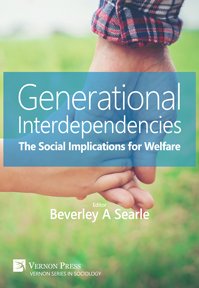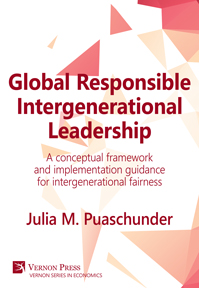Work Appropriation and Social Inequality
Antonia Kupfer (Ed.)
by Genevieve Coderre-LaPalme (University of Birmingham, United Kingdom), Friedericke Hardering (University of Applied Sciences, Muenster, Germany), Stefanie Huertgen (University of Salzburg, Austria), Mirela Ivanova (University of Basel, Switzerland), Antonia Kupfer (Technical University Dresden, Germany), Wolfgang Menz (University of Hamburg, Germany), Felix Nickel (University of Applied Sciences, Muenster, Germany), Sarah Nies (Institute of Social Research, Munich, Germany), Silke Roth (University of Southampton, United Kingdom), Helene Thaa (University of Basel, Switzerland), Paul Thompson (University of Stirling), Charles Umney (University of Leeds, United Kingdom), Stephan Voswinkel (Institute of Social Research, Frankfurt am Main, Germany), Ruth Yeoman (University of Oxford, United Kingdom)
Purchase this book
(click here to change currency)
This volume is a collection of subject-oriented studies on paid work. Each chapter refers to the social structures that form conditions for peoples’ working contexts and interprets workers’ and employees’ narrations on work. Work appropriation—a process of formation of subjectivity, in which workers and employees relate to the social status of their occupations and the use-value of their work in actively dealing with the work’s content and conditions—serves as a comprehensive concept for each varying subject-oriented approach in the volume.
‘Work Appropriation and Social Inequality’ focuses on social inequality, understood as the distribution of life chances that privilege some and discriminate others and reveals the unequal conditions for, and outcomes of, work appropriation. By analyzing work appropriation, it uses a broader concept than that of ‘meaning of work’ or ‘meaningful work’ as it includes the practice and processes of working. The volume’s subject-oriented approach to work differs from the stream ‘subjectivation’ in going beyond individuals’ desires for self-realization in work and to companies’ requirements of accessing emotional and personal dimensions of their workforce.
The volume contains three parts: the first lays out basic approaches to work appropriation and social inequality, the second analyses current threats to work appropriation in the UK and Germany, and the third consists of a philosophical outlook on work in the Anthropocene.
The book’s impact lies in pushing forward the debate on how work appropriations are linked to unequal social structures. It will therefore appeal to social scientists interested in social inequality, sociology of work and organization, as well as students and teachers at the undergraduate and graduate level in the areas of social sciences.
List of tables
Foreword
Paul Thompson
University of Stirling, United Kingdom
Introduction
Antonia Kupfer
Technical University Dresden, Germany
Part I: Basic approaches to work appropriation and social inequality
Chapter 1
Orientation to social advancement and its rejection: how social inequality is processed and criticised
Stephan Voswinkel
Institute of Social Research, Frankfurt am Main, Germany
Chapter 2
Subjective work interests and dissent: inequalities in contesting pressures of valorisation
Sarah Nies
Institute of Social Research, Munich, Germany
Chapter 3
Finding purpose, challenge and adventure – military service as meaningful work
Silke Roth
University of Southampton, United Kingdom
Part II: Current threats to work appropriation
Chapter 4
Inequalities, work alienation and appropriation in the digital world of work
Friedericke Hardering
Johann-Wolfgang-Goethe-University Frankfurt am Main, Germany
Mirela Ivanova
University of Basel, Switzerland
Felix Nickel
Münster University of Applied Sciences, Germany
Helene Thaa
University of Basel, Switzerland
Chapter 5
Class theory and ‘the meaning of work’
Charles Umney
University of Leeds, United Kingdom
Genevieve Coderre-LaPalme
University of Birmingham, United Kingdom
Chapter 6
Meaningful work and social citizenship
Stefanie Huertgen
University of Salzburg, Austria
Chapter 7
Normative Claims toward Work, Crises of Legitimation and Mobilisation
Wolfgang Menz
University of Hamburg, Germany
Part III: A philosophical outlook
Chapter 8
Work in the Anthropocene
Ruth Yeoman
University of Oxford, United Kingdom
Notes on contributors
Index
Dr Antonia Kupfer is Professor of Macrosociology at Technical University Dresden. Previously, she held the position of Senior Lecturer at the University of Southampton, UK from 2011-2014, the Schumpeter Fellowship for the Weatherhead Center of International Affairs at Harvard University from 2010-2011, and she has worked as Assistant Professor at Johannes Kepler University in Linz, Austria where she obtained her habilitation in sociology with work on social inequality. In 2003 Dr Kupfer obtained her PhD in political sciences from Duesseldorf University, Germany. She has held three workshops and published papers in the same area as this volume, and is currently writing a monograph on the same topic.
Class, Labor-process, Alienation, Subject, Recognition, use value, social inequality
See also
Bibliographic Information
Book Title
Work Appropriation and Social Inequality
ISBN
978-1-64889-366-7
Edition
1st
Number of pages
197
Physical size
236mm x 160mm

![Work Appropriation and Social Inequality [Paperback]](/file/16042/dfa84a2cfb5c8dbca69bd100042307ba/1638536865.jpg)






